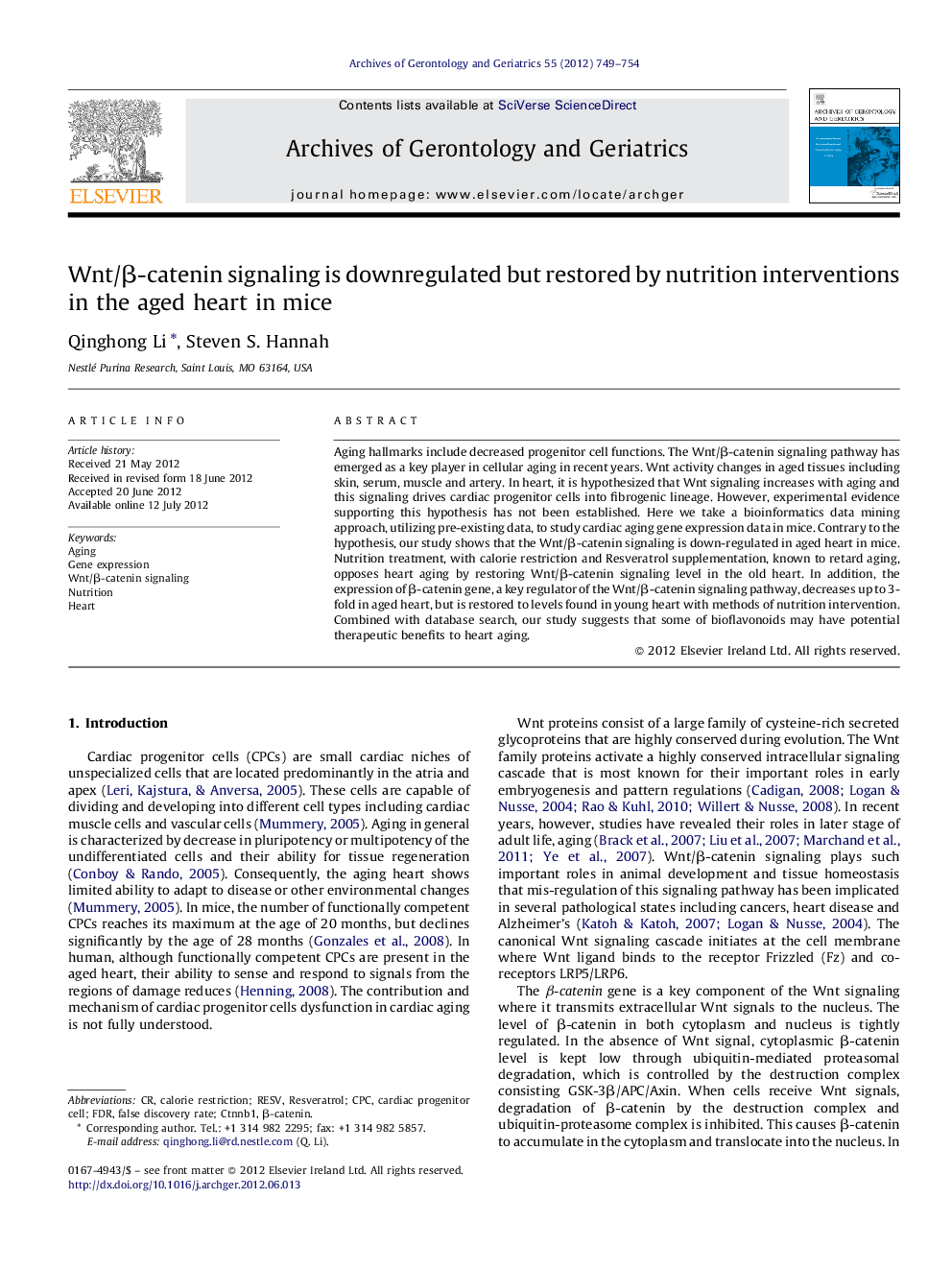| Article ID | Journal | Published Year | Pages | File Type |
|---|---|---|---|---|
| 1903661 | Archives of Gerontology and Geriatrics | 2012 | 6 Pages |
Aging hallmarks include decreased progenitor cell functions. The Wnt/β-catenin signaling pathway has emerged as a key player in cellular aging in recent years. Wnt activity changes in aged tissues including skin, serum, muscle and artery. In heart, it is hypothesized that Wnt signaling increases with aging and this signaling drives cardiac progenitor cells into fibrogenic lineage. However, experimental evidence supporting this hypothesis has not been established. Here we take a bioinformatics data mining approach, utilizing pre-existing data, to study cardiac aging gene expression data in mice. Contrary to the hypothesis, our study shows that the Wnt/β-catenin signaling is down-regulated in aged heart in mice. Nutrition treatment, with calorie restriction and Resveratrol supplementation, known to retard aging, opposes heart aging by restoring Wnt/β-catenin signaling level in the old heart. In addition, the expression of β-catenin gene, a key regulator of the Wnt/β-catenin signaling pathway, decreases up to 3-fold in aged heart, but is restored to levels found in young heart with methods of nutrition intervention. Combined with database search, our study suggests that some of bioflavonoids may have potential therapeutic benefits to heart aging.
